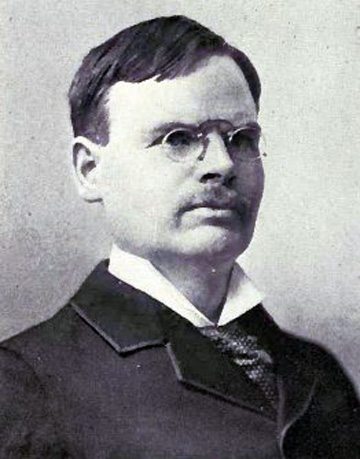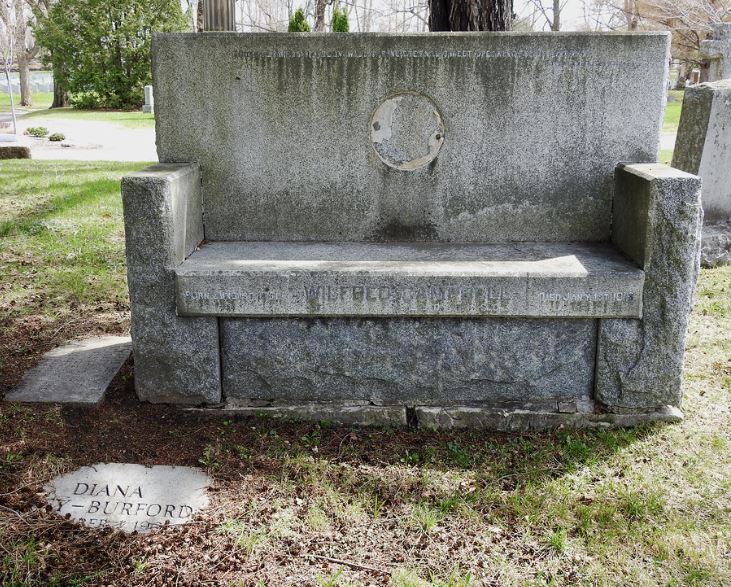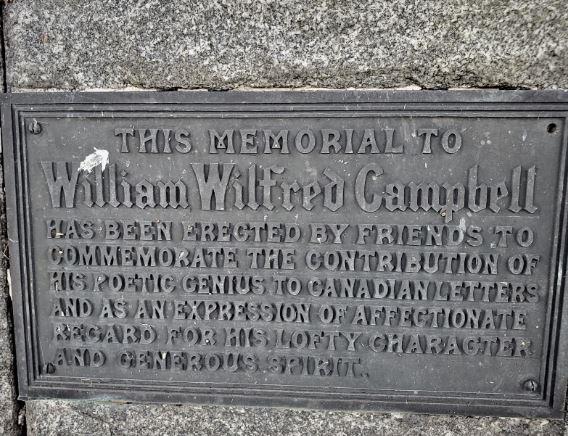
William Wilfred Campbell: A Life in Poetry

Location: Section 22, Lot 41 NE, Beechwood Cemetery
Birth and Early Life - William Wilfred Campbell was born in Kitchener (then Berlin), Canada West, in 1858. The son of an Anglican clergyman, Campbell's early years were marked by frequent relocations as his father established parishes in the Canadian frontier. The family eventually settled in Wiarton, Ontario, in 1871. Campbell's schooling in Owen Sound exposed him to the region's natural beauty, which deeply influenced his poetic sensibilities.
Education and Early Career - Campbell initially followed his father's footsteps, briefly teaching in Wiarton before attending the University of Toronto in 1880. Despite his passion for poetry, he enrolled in the seminary at Wycliffe College in 1882 and the Episcopal Theological School in Cambridge, Massachusetts, in 1883. Campbell married in 1884 and was ordained in 1885. He returned to Canada in 1888 to serve a parish in New Brunswick, where he published his first two poetry collections: Snowflakes and Sunbeams (1888) and Lake Lyrics (1889).
Literary Career and Civil Service - Struggling with doubts about his faith and vocation, Campbell resigned from the ministry in 1891 and took a civil service position in Ottawa. By 1893, he secured a permanent role with the Department of Militia and Defence and later moved to the Dominion Archives in 1909. Living in Ottawa, Campbell became an active member of the literary community, befriending fellow poets Archibald Lampman and Duncan Campbell Scott. Together, they contributed to a literary column in the Toronto Globe titled “At the Mermaid Inn.”
Prolific Writing Period - Campbell's third poetry collection, The Dread Voyage Poems (1893), marked a shift to darker themes. His subsequent works, including Beyond the Hills of Dream (1899), showcased his versatility and passion. Campbell also wrote romances and tragedies, with notable works like Mordred and Hildebrand (1895) and Poetical Tragedies (1908). The early 20th century saw Campbell at his most prolific, producing pamphlets, historical novels, and non-fiction works. Notable publications include Ian of the Orcades (1906), A Beautiful Rebel (1909), The Beauty, History, Romance, and Mystery of the Canadian Lake Region (1910, enlarged in 1914), and The Scotsman in Canada (1911).
Recognition and Later Years - A staunch supporter of the British Empire, Campbell composed An Empire’s Greeting, performed in 1902 for Queen Alexandra, and The Crowning of the King for King George V's coronation. These works earned him recognition in Britain, including an honorary LLD from Aberdeen University in 1906 and an invitation to the 1912 Coronation Procession at Buckingham Palace. In 1914, Campbell published Sagas of a Vaster Britain, a collection of imperialistic verses. Although too old to serve in WWI, he was a fervent recruiter and trainer of soldiers.
Legacy and Memorial - Prime Minister Mackenzie King admired Campbell and initiated the erection of a memorial bench beside his grave. This bench, now missing its bronze plaque, invites visitors to sit and reflect on Campbell's poetry. Campbell passed away on January 1, 1918, at the age of 56, leaving behind a legacy as one of Canada's most brilliant poets.


